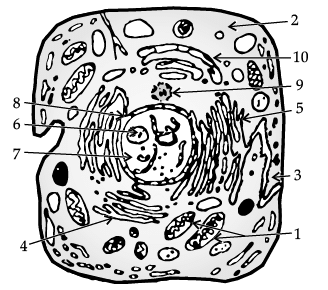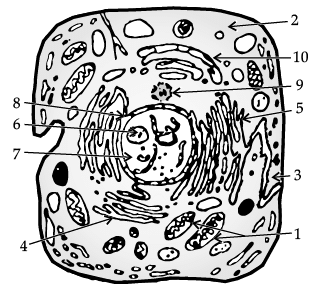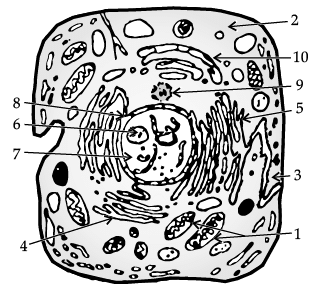Test: The Fundamental Unit of Life- Case Based Type Questions- 2 - Class 9 MCQ
10 Questions MCQ Test - Test: The Fundamental Unit of Life- Case Based Type Questions- 2
Direction: All living Organisms are made up of cells and these cells perform all the functions essential for the survival of the Organism eg. respiration, digestion, excretion etc. In Unicellular organisms, a single cell carries out all these functions and in multicellular organisms different group of cells carry out different functions.
Q. Cell was discovered by
Direction: All living Organisms are made up of cells and these cells perform all the functions essential for the survival of the Organism eg. respiration, digestion, excretion etc. In Unicellular organisms, a single cell carries out all these functions and in multicellular organisms different group of cells carry out different functions.
Q. Select the Prokaryotic cell
Direction: Study the given diagram and answer the following questions.

Q. The Organelle responsible for intracellular transport is

The only cell organelle seen in prokaryotic cell is
Direction: Study the given diagram and answer the following questions.

Q. Identify the diagram
Direction: Study the given diagram and answer the following questions.

Q. Which part in the cell help in protein synthesis
Direction: Two beakers A and B contain plain water and concentrated sugar solution respectively. Equal number of dry raisins are kept in them for a few hours and then taken out.
Q. Shrinkage of protoplasm is known as
Direction: Two beakers A and B contain plain water and concentrated sugar solution respectively. Equal number of dry raisins are kept in them for a few hours and then taken out.
Q. In beaker B, the raisins will_____
Direction: Two beakers A and B contain plain water and concentrated sugar solution respectively. Equal number of dry raisins are kept in them for a few hours and then taken out.
Q. In beaker A, the Raisins would________
Direction: Two beakers A and B contain plain water and concentrated sugar solution respectively. Equal number of dry raisins are kept in them for a few hours and then taken out.
Q. Category of the solution A is



















